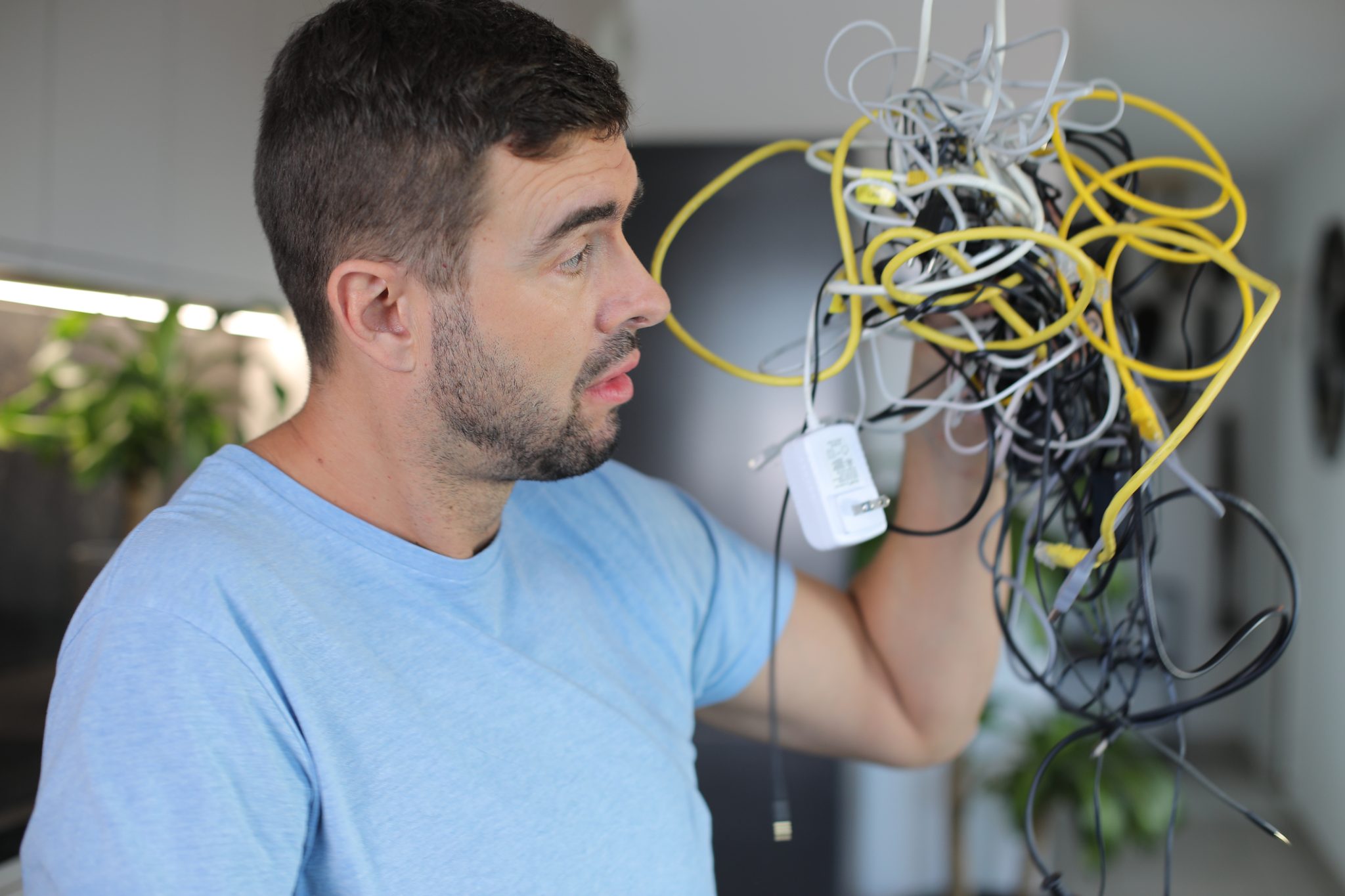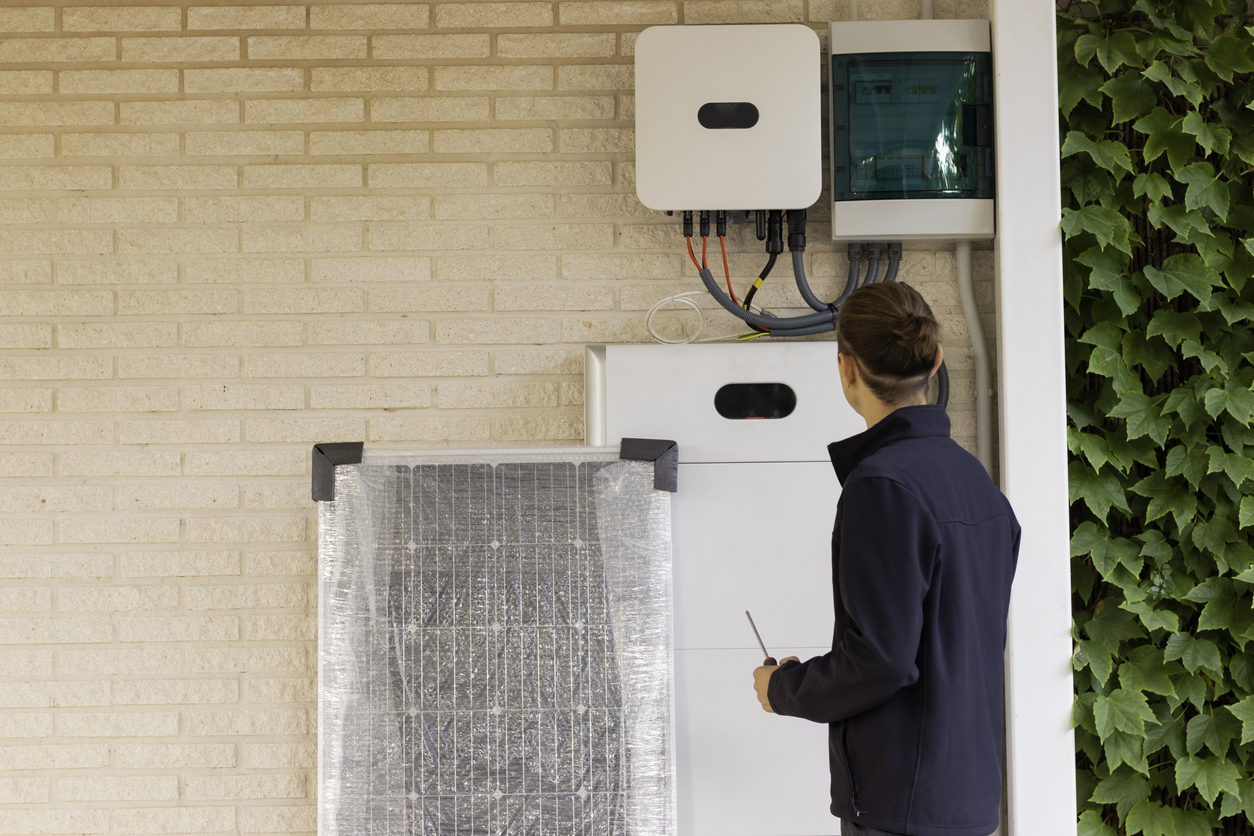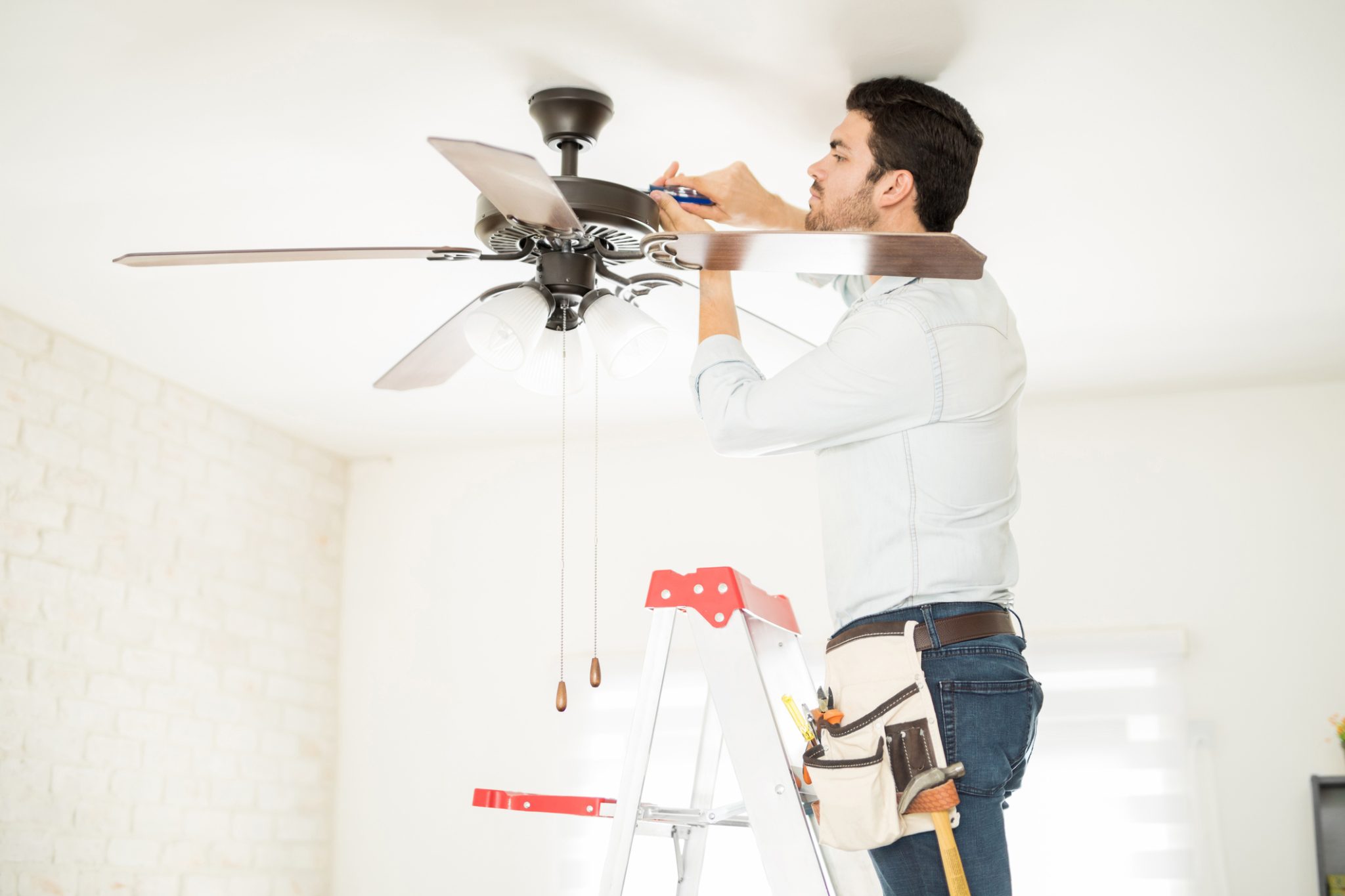It’s no secret: Scottsdale’s sun is a powerful thing. As more homes and businesses move…

DIY EV Charger Installation: What Arizona Homeowners Should Know
Electric vehicles are becoming the new normal, especially around Scottsdale and Paradise Valley. And with more EVs on the road, more homeowners are asking the same question: “Can I install an EV charger myself?” The short answer is simple: you can, but you probably shouldn’t, especially when dealing with a Level 2 charger installation.
Home EV charging sounds straightforward at first glance. Plug in a charger, enjoy fast charging, and call it a day. But installing a Level 2 charger requires electrical knowledge, panel capacity awareness, and an understanding of what Arizona codes do and don’t allow. One mistake can cause a tripped breaker, a fried charger, or worse, a house fire.
What You Need to Know
- Most homeowners should not install a Level 2 charger themselves due to safety and code requirements
- You may need an electrical panel upgrade before installing a charger
- DIY installation can void warranties and create dangerous electrical hazards
- A licensed electrician ensures safe installation, correct permitting, and long-term reliability
Why Home EV Charging Isn’t a Simple DIY Project
Most EV drivers want the convenience of charging at home, especially overnight. Level 1 chargers (the standard plug-in cord that comes with your vehicle) are slow but safe to use on a regular outlet. Level 2 chargers, however, draw much more power, with models that deliver anywhere from 15 to 80 Amps.
That means higher amperage, new wiring, and proper grounding.
Level 2 Charger Setup Requires More Power Than You Think
Level 2 chargers typically run on a 240-volt circuit and need 20–60 amps of dedicated capacity. If your electrical panel is older or already packed, there’s simply no safe place to put one. This is where electrical panel upgrades come into play.
Trying to “make it work” by doubling up breakers or tapping into existing circuits is dangerous. If a breaker doesn’t trip when it should, heat builds up, wires melt, and fire follows.
Arizona Code Requirements Are Not Optional
Phoenix-metro cities, including Scottsdale, Paradise Valley, and Mesa, each have specific permitting guidelines for EV charger installation. Even if you’re comfortable doing the physical wiring, skipping permits can bite you later:
- Home insurance may deny claims if a fire involves unpermitted work
- Home inspectors flag DIY wiring when you sell
- Utility companies may refuse to support load-demand issues
Permits protect you today and in the long run.
The Safety Risks of DIY EV Charger Installation
Electrical installations look simple… right up until they aren’t. Most of the issues that cause fires are invisible until they become catastrophic.
Overloaded Circuits Lead to Real Hazards
Homes in the Scottsdale area, especially older builds, weren’t designed with EV charging in mind. If your panel is running close to capacity, common in 80s and 90s homes, adding a high-demand circuit can push everything past the limit.
Signs your panel may be overloaded:
- Warm breakers
- Flickering lights
- Frequently tripped circuits
- Buzzing sounds near the panel
An electrician tests the load capacity before installation. DIY installers usually don’t.
Wiring Mistakes Can Cost More Than an Electrician
Incorrect wire gauge, loose connections, and improper grounding are the top causes of charger failure. They’re also among the hardest problems for non-electricians to diagnose. And here’s the kicker: many charger manufacturers void warranties for improper installation.
A $600 charger isn’t cheap, and losing that investment over a wiring mistake hurts.
What a Licensed EV Charger Electrician Does Differently
A professional’s job isn’t just “hook up a charger.” It’s making sure your home can safely support one today and for years to come. In fast-growing areas like Scottsdale and Mesa, that matters as homes are being upgraded constantly, and electrical systems need to keep up.
Load Calculations and Panel Evaluations
Electricians look at total household demand:
- AC system
- Pool equipment
- Water heater
- Kitchen appliances
- Existing 240-volt circuits
They determine whether your service panel (100A, 150A, 200A) can handle the new load. If it can’t, they recommend a panel upgrade; something you should never attempt as DIY.
Safe Wiring, Correct Circuit Protection, and Proper Grounding
Everything is installed to code:
- Correct breaker size
- Proper wire gauge
- GFCI protection where required
- Dedicated circuits
- Weather-rated equipment, if installed outdoors
It’s not just about powering the charger, but about keeping you safe.
Permits and Inspections Are Being Handled for You
Permits guarantee your installation follows local code. A licensed electrician gets them approved, schedules electrical inspections, and helps guarantee that everything checks out. DIY installers often skip this step, which leads to headaches later.
When DIY Might Be Fine (But Still Not Ideal)
To be fair, there are situations where someone might technically “DIY” a part of the process.
Plug-In Level 2 Chargers on Existing Outlets
If your garage already has a properly installed 240-volt outlet, a plug-in charger may simply plug in and go. But these outlets must meet code, be on a dedicated circuit, and not share load with appliances like:
- Dryers
- Welders
- Air compressors
If you’re not sure, that’s your sign to get it checked.
YouTube Makes Everything Look Easy
Some homeowners are comfortable with wiring. But most are relying on incomplete or oversimplified online tutorials. What those videos skip are the local code differences, panel limitations, and real-world complications.
DIY is never worth risking safety.
Key Takeaways for Arizona Homeowners
Home EV charging is a game-changer for convenience and daily driving, but installing the charger isn’t a casual Saturday project. Most Level 2 chargers require dedicated circuits, correct wiring, and full compliance with Scottsdale-area electrical codes. A licensed electrician ensures safe installation, protects your warranty, and reduces long-term risks.
If you’re upgrading to an EV in Arizona, getting a professional installation is one of the smartest and safest choices you can make.
Talk to Our Arizona EV Charging Pros Today
Ready to set up safe, fast home EV charging? Castle Electric and Lighting’s licensed electricians handle everything from panel evaluations to charger installation, so you get reliable charging without the stress. Call (480) 570-8014 or contact us online to schedule your installation or request a quote.
Castle Electric and Lighting proudly serves Scottsdale, Paradise Valley, Mesa, and surrounding communities with trusted residential and commercial electrical services.




